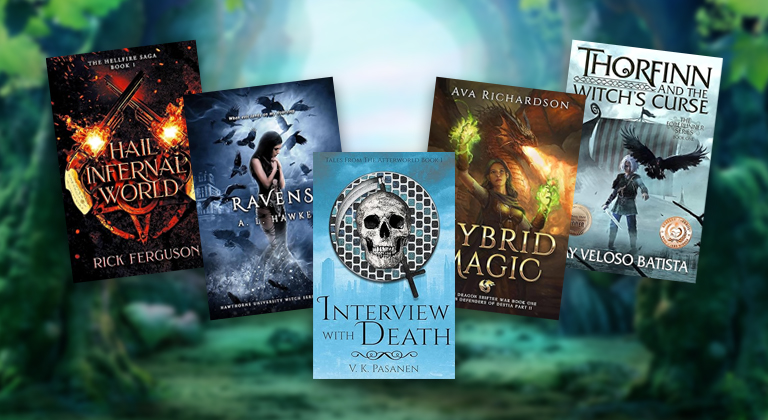Book Censorship: First it was Roald Dahl, now they’re after Ian Fleming…
The issue of censorship has always sparked heated debates, especially among authors and in the literary world. Some argue that book censorship is necessary to protect vulnerable readers and uphold current moral standards, while others see it as a violation of freedom of expression. In recent years, the debate has intensified as even popular celebrities have faced backlash for past remarks or actions, and social media sites have banned or restricted certain types of content.
As Ginger discusses below, the latest target of this trend are authors Roald Dahl and Ian Fleming, whose works are currently under fire for including language or passages that would likely never have passed an editor’s review if written today. However, this raises the question: should we be censoring books written in a different era, based on current cultural and social norms? Instead of altering these books, maybe a better idea would be to preserve them as part of our literary history, and we should instead focus on teaching readers to develop critical thinking skills that allow them to understand how these stories simply reflect a different time and place?
It’s probably no surprise to those of us who love books, but we’re in the midst of a culture war at the moment. Elon Musk’s “Twitter files” exposed mass government censorship of free speech on social media, while Republican Governor Ron DeSantis passed a law last year making it easier to ban books from Florida’s classrooms. It seems everywhere people are trying to control what we can and can’t read.
In February, it was beloved children’s author Roald Dahl under fire. Puffin books, an imprint of Penguin Random House, announced hundreds of changes to books like Charlie and the Chocolate Factory, James and the Giant Peach, Fantastic Mr Fox, and The Witches to remove language they were concerned might offend young readers. Following recommendations from sensitivity readers at Inclusive Minds, edits included describing Augustus Gloop as “enormous” rather than “enormously fat” to avoid potentially offending fat people.
There was a predictable outrage, of course – and a good job too. However, even though Penguin reversed their decision to implement these changes, that hasn’t stopped other publishers following suite. The latest author in the crosshairs of censorship is Ian Fleming, the creator of the James Bond novels – and ironically he’s being targeted by the very people who swore to uphold his legacy: Ian Fleming Publications.
You might remember last year how excited I was to announce that the Estate of Ian Fleming were quietly revolutionizing the publishing industry by reclaiming the rights to Ian’s work. I’d hoped this was another milestone in the battle against traditional publishers, who continue to short-change authors and undermine their work.
However, it seems like even Ian Fleming’s own family aren’t immune to poorly conceived attempts to “improve” the work of this great author. Prior to the publication of the 70th anniversary editions of Ian Fleming’s James Bond books, Ian Fleming Publications (IFP) quietly announced that they, too, had authorized changes to many of the books to remove “words likely to cause great offence” and “detract from a reader’s enjoyment.”
Their justification in doing so was how Ian Fleming himself had authorized changes to the American edition of Live and Let Die in 1955 to delete or change passages or words that his editor felt would be “troubling” to a nation in the midst of the civil rights movement. Ian Fleming Publications announced that they would “apply the sensibilities of the original US edition of Live and Let Die consistently across all texts.”
However, their statement was disingenuous. The changes they were making were not limited to removing specific words that could be troubling (like the name of a coral formation in Jamaica still commonly referred to as an “n-word head”.) Passages were changed entirely, such as a section of Live and Let Die set in Harlem, in which patrons of a club were described as “panting and grunting like pigs at the trough.” The estate of Ian Fleming altered this to “Bond could sense the electric tension in the room” because they were concerned that people might find this description of the residents of Harlem (a traditionally Black neighborhood) offensive.
Throughout the original imprints of the books, black characters are often referred to as “Negros” because that was the acceptable term for Black people in the 1950s (indeed, the term they used to describe themselves at that time.)
Because that word is considered problematic today, the Estate of Ian Fleming has replaced this with “Black” in most instances, or removed racial descriptors for characters entirely. However, this ironically also removes why Ian Fleming used those terms in the first place.
In 1958’s Dr. No, Ian Fleming describes the race of an Immigration Officer and a doctor because that was something significant and interesting for the mostly white, English audiences at the time to know. Describing Black medical professionals and authority figures was eye-opening to many white readers, and illustrated the decline of British colonialism and the rise of Black self-determination in soon-to-be former colonies like Jamaica.
To remove these racial descriptors is to remove much of the historical context that made the James Bond books so compelling at the time. It’s as if the Estate of Ian Fleming decided that the best way to prevent offending Black people was to remove Black people from the books entirely.
The irony continues in the troubling sections of the Ian Fleming books that haven’t been changed. In Goldfinger, Koreans continue to be described as “the cruelest, most ruthless people in the world” and a scene in which one of them eats a cat remains. Likewise, in the same book, James Bond continues to ‘cure’ Pussy Galore of her lesbianism.
The Estate of Ian Fleming has applied an inconsistent standard to their censorship which ensures the worst of both worlds – ruining the integrity of the original texts while simultaneously allowing them to remain racially and sexually insensitive.
Already a petition has been created that hopes to convince the Estate of Ian Fleming to reverse these changes. However, with the new UK editions of the books set to hit the bookshelves in April, many are concerned that it’s already too late to reverse course. Given that hundreds of Bond fans have already sworn to boycott these anniversary editions of the books, it’s possible Ian Fleming Publications have inadvertently decided to mark the 70th anniversary of the literary James Bond by torpedoing Ian Fleming’s legacy – a legacy they’d created their own imprint supposedly to protect.
And which author will be next in the crosshairs? Which other literary greats face imminent and ill-conceived attempts at censorship? It’s truly disturbing to see iconic writers under assault for words written decades earlier, and it’s especially upsetting because many of them are no longer alive to defend their work.
Do you think censoring authors like Roald Dahl and Ian Fleming is acceptable? Or do you agree that their written words should remain unaltered, as a matter of historical record. Let us know in the comments section below!











You nailed everything that’s wrong with this loony trend by pointing out in order to not offend black folks, the black folks would just be erased in the stories. I mean, I laughed out loud because it’s true. I am seriously not in a good headspace right now. Between this kind of censoring nonsense, Chat-bots moving in, and my books sitting in Amazon oblivion, I’m wondering if it might be time to move on.
If we ignore history we’re condemned to repeat it. Books from the past are wonderful windows on their societies and today’s readers can learn from that. By looking back at where we came from we can better chart a course ahead.
Censorship in any form is simply an effort to control how people think and consequently how they act. Those who espouse such restrictions always have their own agendas. Any offered rhetoric or justification aside,their bottom line will always be to control the thoughts and actions of others.
It is your right to think for yourself–never give that up.
Some children’s books have constantly been updated–think Nancy Drew, for instance. My daughter’s Nancy was much different from my Nancy. Some should be updated. I was horrified when I opened one of my old Bobbsey Twins books and read where the twins teased their (Black) cook for being fat. Out went the books. I don’t know if Bobbsey Twins books still exist today, but I suspect they’ve been updated with no to-do about it.
Those books were written by (then anonymous) authors for a publishing company, so there is no author legacy to uphold. This is where it gets tricky with Roald Dahl and Ian Fleming. I honestly don’t know what is best.
Changing existing books is a slippery slope because it’s someone else making a call as to what is or isn’t appropriate or what was or wasn’t a realistic depiction of the time and place in which a story took place.
I say leave them alone. The originals should remain as written. If publishers want to do something, they can add a disclaimer about a book representing the time and place.
It makes sense to me that ‘original editions’ should still be pusblished, and also editions for sensitive readers… both with clear and appropriate labels.
This allows the company to make money on both editions and satisfy both types of readers.
I’d imagine that the ‘sensitive/modern’ editions will change every decade or so (as what is considered acceptable changes). So I suppose sensitive/modern issues will need to clearly label the year when it was published.
Book collectors might have fund collecting sensitive/modern issues that are superceded within months of being publised due to some new and trending sensitivity